Operation Sindoor Explained: 9 Blasts, 1 Message - Don’t Mess With India (Justice for Pahalgam)
Riya Kumari | May 07, 2025, 04:42 IST

( Image credit : Times Life Bureau )
India's Army Sends a Clear Message: Don’t Mess with Us. In the grand chessboard of geopolitics, "Operation Sindoor" serves as a stark reminder: when pushed to the edge, nations will act decisively. India's message is clear—acts of terror will not go unanswered. As the world watches, one can only hope that cooler heads prevail and dialogue replaces discord.
With Operation Sindoor, India has once again demonstrated its willingness to take decisive action in the fight against terrorism, signaling that there will be no tolerance for cross-border terrorism. While tensions remain high, India’s military and diplomatic responses have been carefully calculated to avoid further escalation while sending a strong message to Pakistan and terrorist groups operating from its soil. As Pakistan vows to retaliate, the region braces for what could be a prolonged period of heightened military and diplomatic tensions.
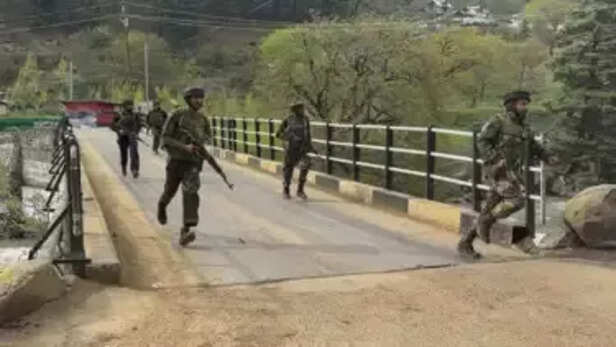
In a significant military response to the deadly terrorist attack in Pahalgam, Jammu and Kashmir, the Indian Armed Forces launched ‘Operation Sindoor’ in the early hours of May 7, 2025. The operation targeted nine terror infrastructure sites in Pakistan and Pakistan-Occupied Kashmir (PoK), believed to be involved in planning and directing attacks against India. The strikes, which occurred at approximately 1:44 a.m. local time, were described by the Indian government as “focused, measured, and non-escalatory in nature.” The statement further clarified that no Pakistani military facilities were struck, emphasizing that India had exercised restraint in selecting targets and executing the operation.
India’s government stated, "Our actions have been focused, measured, and non-escalatory in nature. No Pakistani military facilities have been targeted. India has demonstrated considerable restraint in selection of targets and method of execution." The statement further stressed that India remained committed to holding the perpetrators of the April 22 Pahalgam attack accountable. The Pahalgam attack, in which 26 civilians—25 Indians and one Nepali—were killed, had left India reeling. Prime Minister Narendra Modi and other senior leaders had condemned the attack and vowed that those responsible would face severe repercussions. Following the attack, India had taken several diplomatic steps, including suspending the Indus Waters Treaty, revoking visas for Pakistani nationals, and reducing diplomatic ties with Pakistan.
Operation Sindoor: India's Retaliatory Strikes
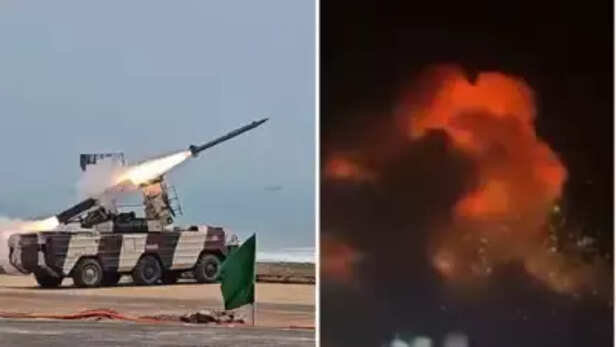
Minutes after the official statement from the government, the Indian Army posted a message on social media platform X, declaring, “Justice is served. Jai Hind,” along with the hashtag #PahalgamTerrorAttack. ‘Operation Sindoor’ marks the third major military action taken by India in response to terror attacks originating from Pakistan in the last decade. The previous strikes include the surgical strikes in 2016 following the Uri attack, and the Balakot airstrike in 2019 after the Pulwama bombing.
The operation targeted key terror camps and infrastructure in various locations, including Bahawalpur, Kotli, and Muzaffarabad. These locations are known to be bases for terrorist organizations such as Lashkar-e-Taiba, led by Hafiz Saeed, and Jaish-e-Mohammad, headed by Masood Azhar. India’s Ministry of Defence has not released detailed information on the exact sites targeted. Pakistan has confirmed the strikes, with the military reporting three casualties and over a dozen injuries. Pakistan's military spokesperson, however, denied that any military facilities were struck by the Indian forces, a claim echoed by India.
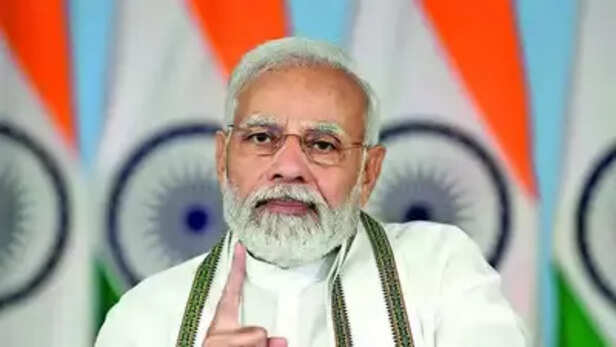
In the days leading up to the strikes, the Indian government had engaged in high-level meetings to discuss the response to the Pahalgam attack. Prime Minister Modi met with National Security Advisor Ajit Doval, Defence Minister Rajnath Singh, and military chiefs to finalize India’s course of action. According to sources, the Prime Minister gave the military “complete operational freedom” to decide on the timing, targets, and methods of retaliation.
Meanwhile, Pakistan’s military had taken defensive measures, mobilizing troops and heavy equipment along the border and conducting several military exercises. Pakistan also issued multiple ‘Nav area’ warnings and Notices to Airmen (NOTAMs), signaling potential escalation along the border. Despite this, Indian forces carried out the strikes without significant troop mobilization, focusing on precision and minimizing collateral damage.
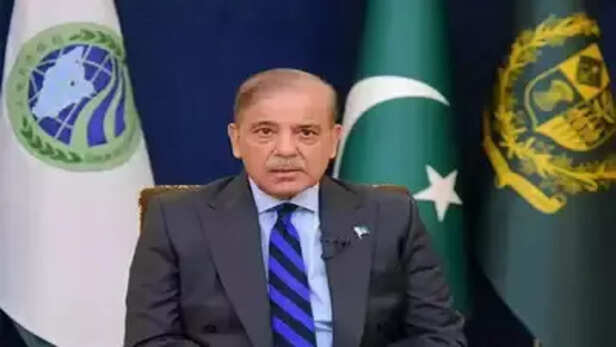
In response to India’s military action, Pakistan’s Prime Minister Shehbaz Sharif condemned the strikes, asserting that Pakistan had every right to retaliate at a time and place of its choosing. Pakistan has vowed to respond forcefully to what it described as an “act of war” imposed by India. The Pakistani military has opened artillery fire along the Line of Control in the Bhimber Gali sector, in the Poonch-Rajauri region of Jammu and Kashmir. Indian forces have responded "appropriately in a calibrated manner" to the fire, according to a statement from the Indian Army.
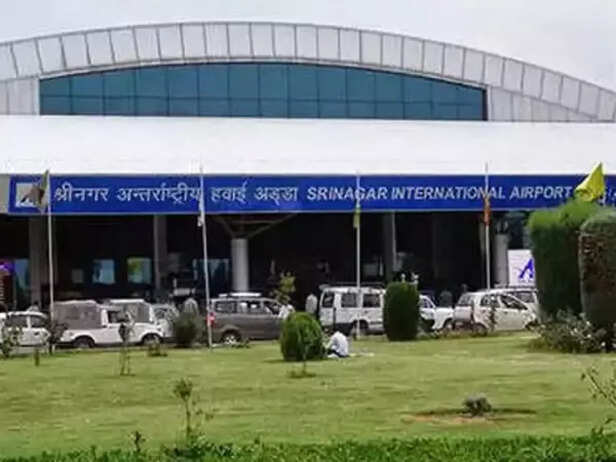
Following the escalation, airspace in regions like Jammu, Srinagar, Amritsar, and Chandigarh was impacted. IndiGo airlines announced delays and cancellations due to “changing airspace conditions.” The Srinagar airport, in particular, was shut down for the day. The Indian Air Force also initiated a two-day military exercise in Rajasthan along the international border with Pakistan, with flight operations restricted over the Thar Desert region.
Additionally, India has prepared for a national security drill, planned for May 7, to assess the country’s civil defense readiness in the event of a hostile attack. This drill spans 244 districts and is the first of its kind since the 1971 war between India and Pakistan.
Global Reactions and the Road Ahead

The international community has expressed concern over the escalating tensions. UN Secretary-General António Guterres and U.S. President Donald Trump have both called for restraint, urging both nations to de-escalate the situation. Meanwhile, flight operations in the region have been disrupted, and both countries have revoked visas and suspended diplomatic engagements.
The Pahalgam attack and subsequent Operation Sindoor highlight the fragile nature of peace in the region. While India's response underscores its commitment to combating terrorism, the risk of further escalation remains. It is imperative for both nations to engage in dialogue and seek diplomatic solutions to prevent further loss of life and ensure regional stability.
The Pahalgam Attack: A Tragic Incident

Pahalgam
( Image credit : Times Life Bureau )
In a significant military response to the deadly terrorist attack in Pahalgam, Jammu and Kashmir, the Indian Armed Forces launched ‘Operation Sindoor’ in the early hours of May 7, 2025. The operation targeted nine terror infrastructure sites in Pakistan and Pakistan-Occupied Kashmir (PoK), believed to be involved in planning and directing attacks against India. The strikes, which occurred at approximately 1:44 a.m. local time, were described by the Indian government as “focused, measured, and non-escalatory in nature.” The statement further clarified that no Pakistani military facilities were struck, emphasizing that India had exercised restraint in selecting targets and executing the operation.
India’s government stated, "Our actions have been focused, measured, and non-escalatory in nature. No Pakistani military facilities have been targeted. India has demonstrated considerable restraint in selection of targets and method of execution." The statement further stressed that India remained committed to holding the perpetrators of the April 22 Pahalgam attack accountable. The Pahalgam attack, in which 26 civilians—25 Indians and one Nepali—were killed, had left India reeling. Prime Minister Narendra Modi and other senior leaders had condemned the attack and vowed that those responsible would face severe repercussions. Following the attack, India had taken several diplomatic steps, including suspending the Indus Waters Treaty, revoking visas for Pakistani nationals, and reducing diplomatic ties with Pakistan.
Operation Sindoor: India's Retaliatory Strikes

Operation sindoor
( Image credit : Times Life Bureau )
Minutes after the official statement from the government, the Indian Army posted a message on social media platform X, declaring, “Justice is served. Jai Hind,” along with the hashtag #PahalgamTerrorAttack. ‘Operation Sindoor’ marks the third major military action taken by India in response to terror attacks originating from Pakistan in the last decade. The previous strikes include the surgical strikes in 2016 following the Uri attack, and the Balakot airstrike in 2019 after the Pulwama bombing.
The operation targeted key terror camps and infrastructure in various locations, including Bahawalpur, Kotli, and Muzaffarabad. These locations are known to be bases for terrorist organizations such as Lashkar-e-Taiba, led by Hafiz Saeed, and Jaish-e-Mohammad, headed by Masood Azhar. India’s Ministry of Defence has not released detailed information on the exact sites targeted. Pakistan has confirmed the strikes, with the military reporting three casualties and over a dozen injuries. Pakistan's military spokesperson, however, denied that any military facilities were struck by the Indian forces, a claim echoed by India.
Diplomatic and Military Context

Modi
( Image credit : Times Life Bureau )
In the days leading up to the strikes, the Indian government had engaged in high-level meetings to discuss the response to the Pahalgam attack. Prime Minister Modi met with National Security Advisor Ajit Doval, Defence Minister Rajnath Singh, and military chiefs to finalize India’s course of action. According to sources, the Prime Minister gave the military “complete operational freedom” to decide on the timing, targets, and methods of retaliation.
Meanwhile, Pakistan’s military had taken defensive measures, mobilizing troops and heavy equipment along the border and conducting several military exercises. Pakistan also issued multiple ‘Nav area’ warnings and Notices to Airmen (NOTAMs), signaling potential escalation along the border. Despite this, Indian forces carried out the strikes without significant troop mobilization, focusing on precision and minimizing collateral damage.
Pakistan’s Response

Shehbaz Sharif
( Image credit : Times Life Bureau )
In response to India’s military action, Pakistan’s Prime Minister Shehbaz Sharif condemned the strikes, asserting that Pakistan had every right to retaliate at a time and place of its choosing. Pakistan has vowed to respond forcefully to what it described as an “act of war” imposed by India. The Pakistani military has opened artillery fire along the Line of Control in the Bhimber Gali sector, in the Poonch-Rajauri region of Jammu and Kashmir. Indian forces have responded "appropriately in a calibrated manner" to the fire, according to a statement from the Indian Army.
Air Operations and Civilian Impact

Srinagar airport
( Image credit : Times Life Bureau )
Following the escalation, airspace in regions like Jammu, Srinagar, Amritsar, and Chandigarh was impacted. IndiGo airlines announced delays and cancellations due to “changing airspace conditions.” The Srinagar airport, in particular, was shut down for the day. The Indian Air Force also initiated a two-day military exercise in Rajasthan along the international border with Pakistan, with flight operations restricted over the Thar Desert region.
Additionally, India has prepared for a national security drill, planned for May 7, to assess the country’s civil defense readiness in the event of a hostile attack. This drill spans 244 districts and is the first of its kind since the 1971 war between India and Pakistan.
Global Reactions and the Road Ahead

Trump
( Image credit : Times Life Bureau )
The international community has expressed concern over the escalating tensions. UN Secretary-General António Guterres and U.S. President Donald Trump have both called for restraint, urging both nations to de-escalate the situation. Meanwhile, flight operations in the region have been disrupted, and both countries have revoked visas and suspended diplomatic engagements.
The Pahalgam attack and subsequent Operation Sindoor highlight the fragile nature of peace in the region. While India's response underscores its commitment to combating terrorism, the risk of further escalation remains. It is imperative for both nations to engage in dialogue and seek diplomatic solutions to prevent further loss of life and ensure regional stability.
